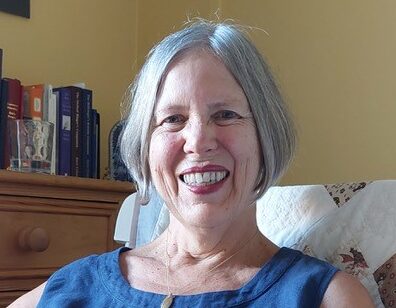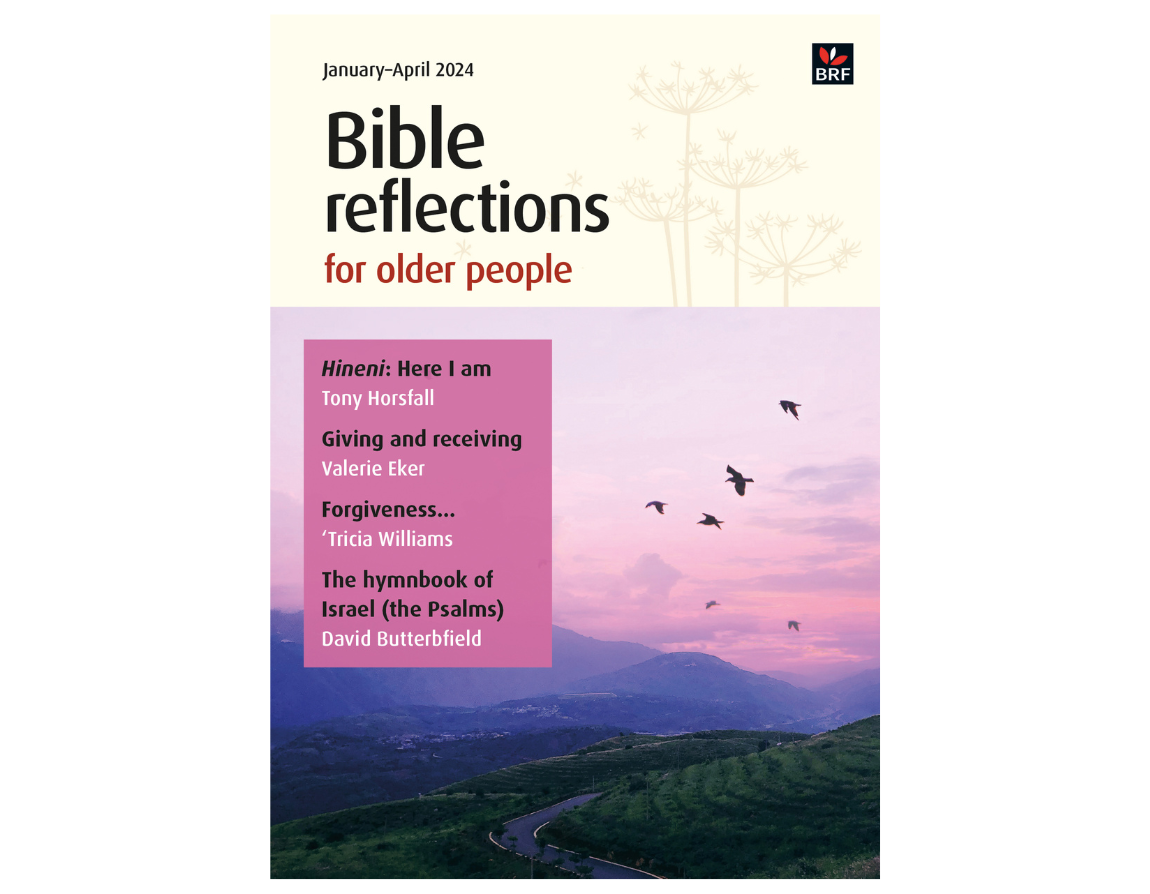In our series of articles on ‘Spending time with God’, contributors from each of our different Bible reading notes have shared their personal reflections. The series concludes with Lynn Goslin, who writes for Bible Reflections for Older People.
4 February 2024
‘I haven’t got time… I’m too busy… I’ll never get this lot done…’ All of us have expressed, and have heard others express, these feelings of being pressured by the to-do lists of our lives. There seems to be so little time to pause, reflect and take stock even in a secular way, let alone in quiet time with God.
I was reminded, while reading Mark’s gospel recently, that Jesus faced the same problem of how to find time to spend with God. In chapter 6 we see him trying to get away with the disciples to a deserted place ‘for many were coming and going, and they had no leisure even to eat’ (Mark 6:31). The plan fails, despite a get-away boat, at least three times in this passage: the crowd gets there before him on two occasions; on the third he leaves his time of prayer to help the disciples in trouble on the lake.

There seems to be so little time to pause, reflect and take stock… Jesus faced the same problem.
Our heart’s desire
‘Be still, and know that I am God’ (Psalm 46:10) is the familiar instruction. But when? And how? We can do what Jesus and the disciples did and take advantage of the regular services provided – in their case, in the synagogue and temple; in ours, in church or other religious meeting places. But these are also places where we are often asked to contribute our talents. Is it just me who has Sundays where I find myself bell-ringing before the service, reading a lesson or administering the chalice during the service, then running the bookstall during coffee after the service? Your list will be different, but these activities can take over, resulting in a busy head, a tense body, and our heart’s desire – to sit with God and attend to him – thwarted.
Silence is a key element often missing in public worship. Our vicar encountered some resistance when he first introduced silence into the normal Sunday service – before the start of the service, after each reading, following the sermon, after prayers. ‘What are we supposed to be doing now?’ was the whispered comment; ‘Nothing!’ was the appropriate answer. Silence is challenging, especially to our busy minds, but with practice it gives time to linger, ponder and process what has been heard instead of rushing on to the next action.
Using silence
In fact, I’ve started to use silence in our home group. We’ve been meeting regularly for almost five years. During that time our meetings really came to life with BRF Ministries’ Holy Habits resources, and they have continued to grow in spiritual strength and perceptive comment. Silence before we start draws a line between our sociable chat and our attention to God. We wait in welcoming silence after a question rather than rushing to fill the quiet moment. And at the end, a time of silence allows us to draw our thoughts together before we leave.
Organised activities, like services and home groups, are relatively easy ways of spending time with God. They have regularity and organisation which do not depend on our personal schedule, our effort, our feelings or state of mind. But clearly Jesus’ ultimate goal was time with God in quiet and alone. In the passage from Mark mentioned above, he achieves this on a mountaintop. Later in the gospel, we cannot fail to be moved by his long solitary prayer time in Gethsemane (Mark 14:32–42). This solitary quiet time is the goal for us too and perhaps the most difficult to achieve. All sorts of things prevent us – the demands or needs of family or friends, a lack of space or quiet, poor health, our state of mind, a lack of will.

‘Be still, and know that I am God’ is the familiar instruction. But when? And how?
A helpful structure
Throughout my life, daily Bible reading notes have offered helpful structure. When I started writing for Bible Reflections for Older People, I noticed this suggestion in the notes for readers:
‘Take time to quieten yourself, becoming aware of God’s presence, asking him to speak to you.’
This links in my mind with the practice of contemplative prayer, which has a many-centuries-long history. The essence of this kind of prayer is captured in the 14th-century guide to contemplation The Cloud of Unknowing: ‘Simply raise your heart to God,’ the author writes: ‘with a gentle stirring of love… Think only of God.’
Contemplative prayer takes Jesus’ instruction seriously, to seek and welcome God’s presence privately in silent stillness (Matthew 6:6). To do this the mind is to be stilled of activity, the body relaxes in God’s presence, and the heart’s desire to sit with God is expressed by silent and expectant waiting.
I know from personal experience that this is not easy. There are some days when I take comfort from the advice of more experienced folk who say that even just turning up is an expression of our intention to spend time with our God, who accepts, in love, even this minimal expression of our desire for him.
God’s work in progress
And silence is challenging, frightening even. In silence our hearts are naked before God. We come, like the prodigal, with all our hurts and excuses, but all are stilled in the embrace of Love. No words need to be framed because everything is known. In some sense it is the temporal moment at which our human life’s ‘now’ meets the eternity of God and our limited human capacity touches limitless love. It is the moment in which we encounter God in the present, not in our limited remembrance of times past, nor in our plans and worries for the future, but sitting at his feet, choosing the ‘better part’ (Luke 10:42). And, to the surprise of those of us with little faith, Jesus keeps his word:
‘Listen! I am standing at the door, knocking; if you hear my voice and open the door, I will come in and eat with you, and you with me.’
Revelation 3:20
Indeed, when we have taken time and made the effort to meet with our God, we find not only does he come to meet us, but this eternal connection with God is carried into our everyday life so that we see his presence everywhere. From this I glimpse the truth that time spent with God can become woven inextricably into every moment of every day. Not something I’ve achieved yet, and it’s not going on any to-do list: let’s just call it God’s work in progress.
Scripture quotations are taken from the New Revised Standard Version Updated Edition. Copyright © 2021 National Council of Churches of Christ in the United States of America. Used by permission. All rights reserved worldwide.



